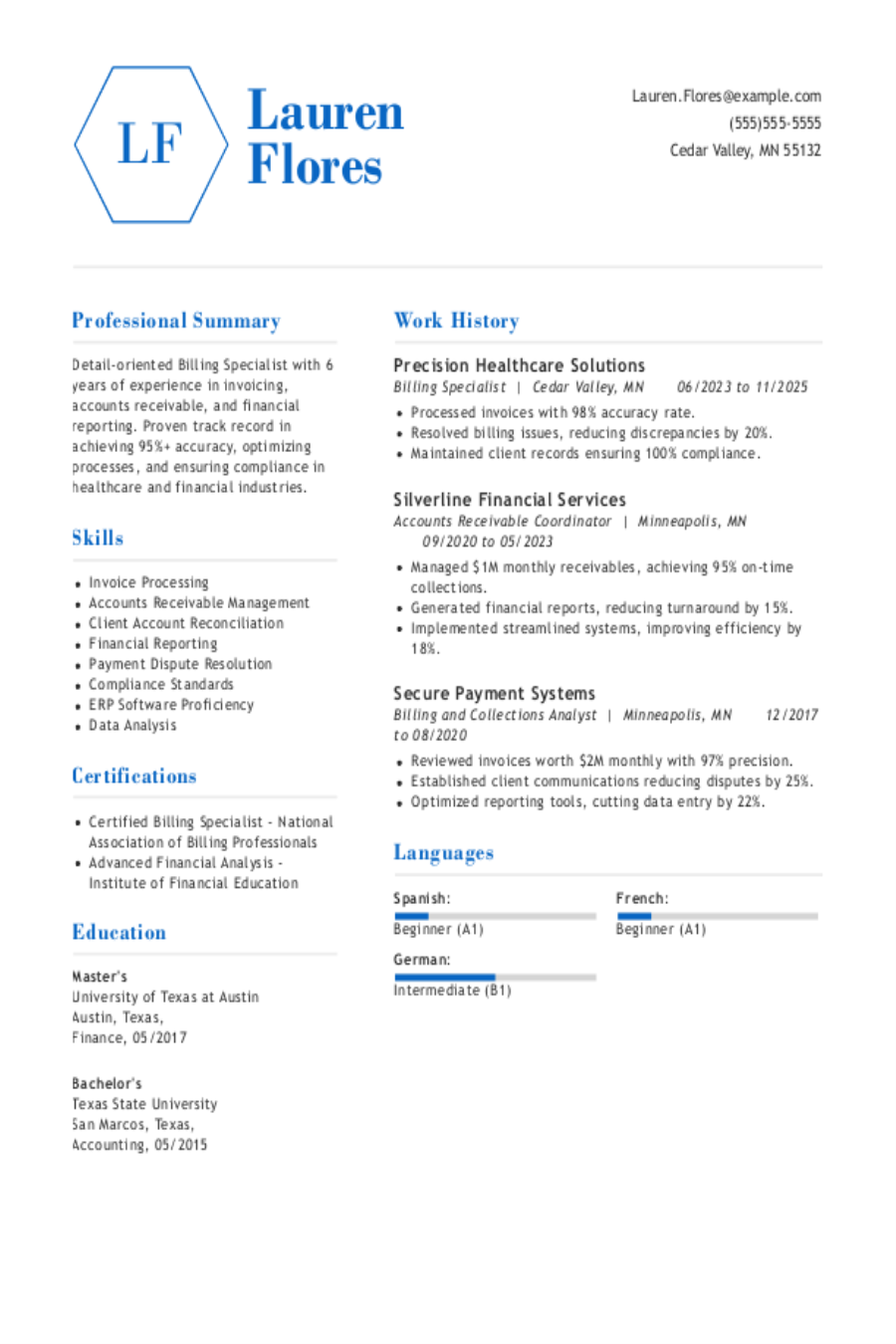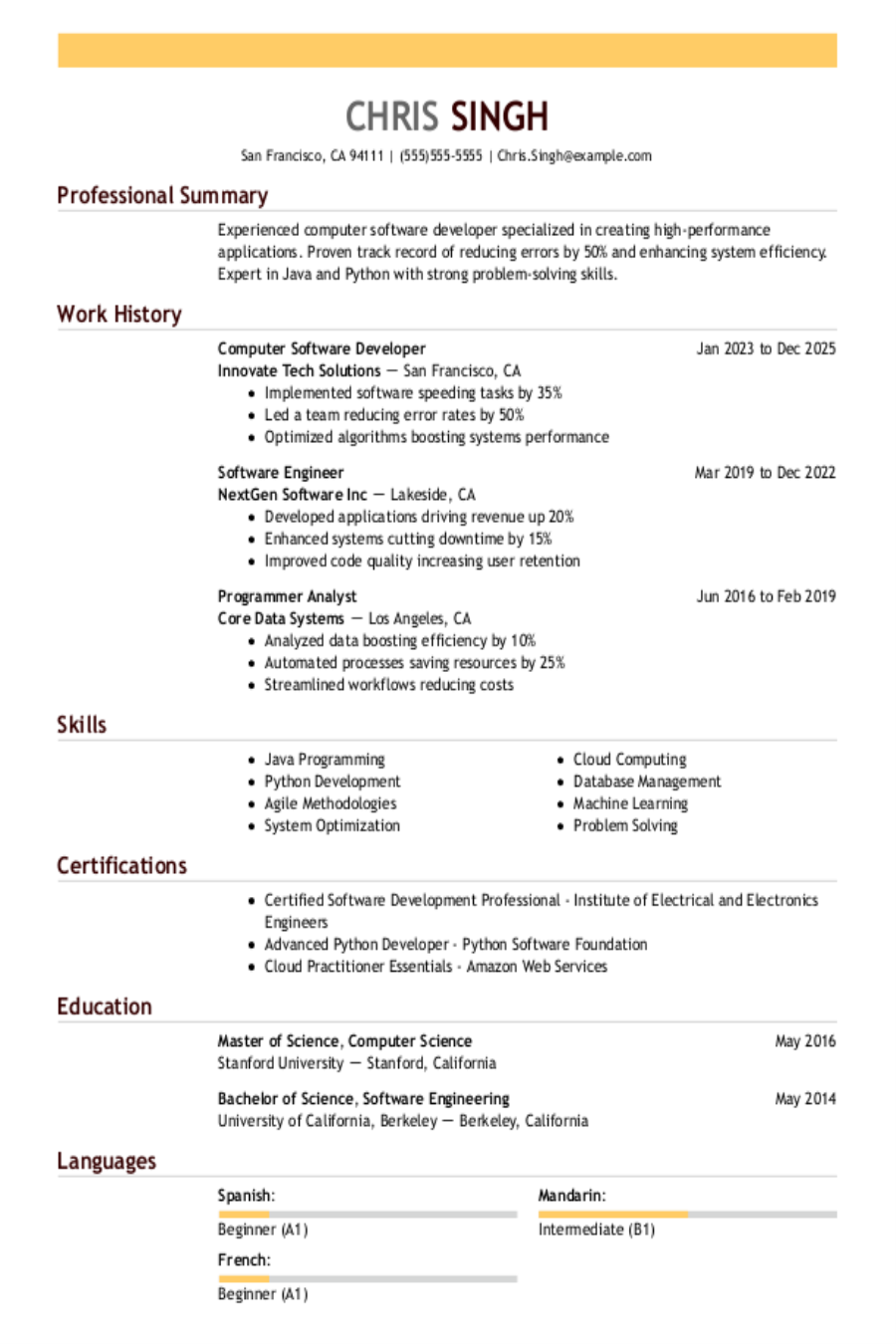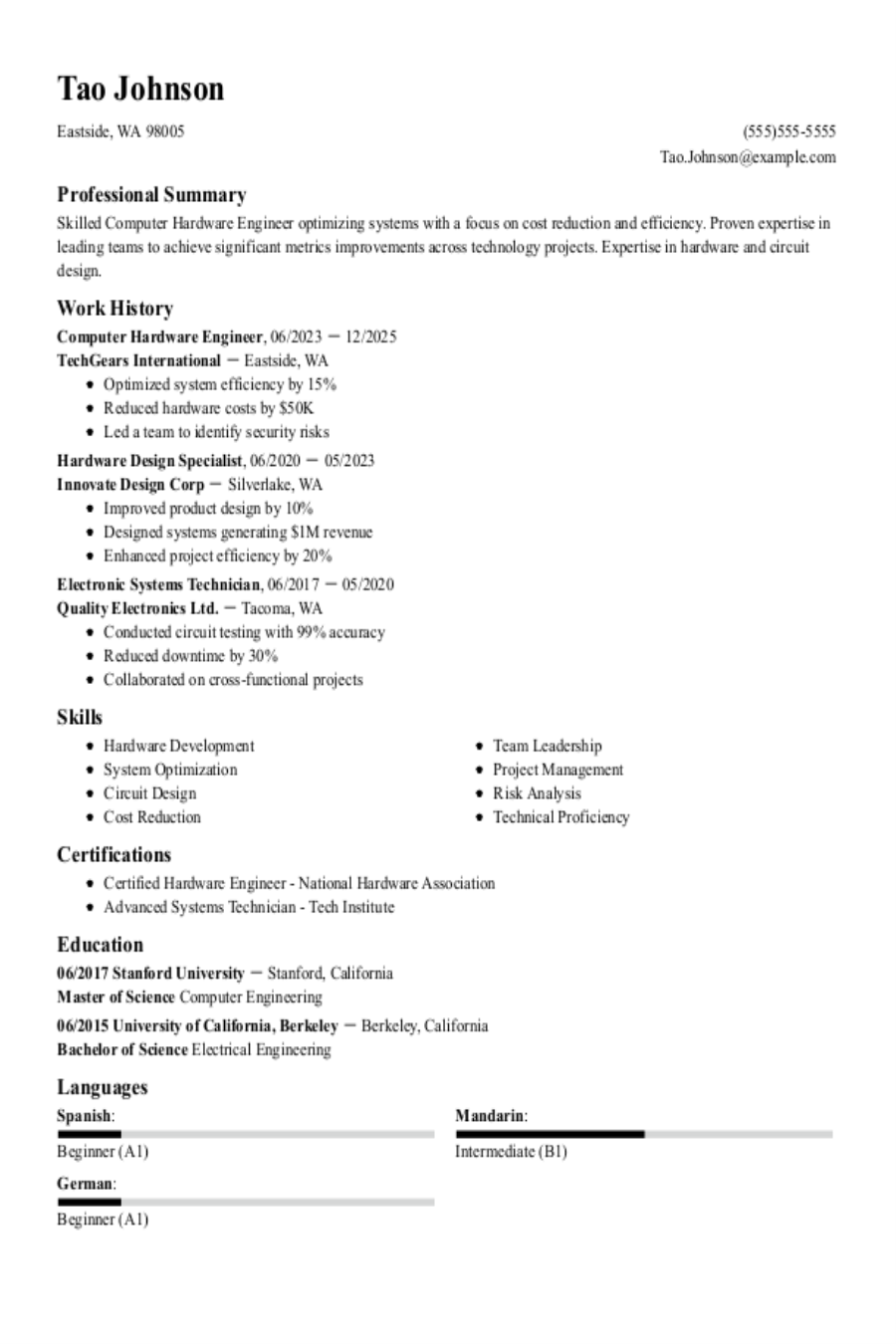Work isn't just something we do; it's a major facet of our lives. And the relationships we forge at work, though they may not be as intimate or deep as our personal relationships, are a key part of the social fabric of our lives.
The ability to build and maintain supportive networks at work and in broader professional circles is a critical skill. Your networking skills are crucial for both your career prospects and your interpersonal relationships.
But how do you develop your networking skills? And how can you show employers that you're prepared to form and maintain meaningful connections at work? Our guide can help with that.
What you'll discover in this guide:
- A definition of networking skills to help you grasp their importance
- Examples of networking skills you can use for your resume
- Practical tips to refine and enhance your networking skills
Looking to showcase your networking skills on a professional resume? Try our AI Resume Builder. Use this tool to get job-specific content suggestions and formatting tips to help you build the perfect resume quickly.
What Are Networking Skills and Why Do They Matter?
From coworkers to colleagues to fellow professionals in your field, your network consists of the relationships you've built over the course of your career. This network is a resource that you can use to collaborate with others, find new opportunities, and uplift your professional community.
Nothing can be accomplished without great people. The connections you build are your link to meeting these great people, so you can help each other succeed.
Whether you're a recruiter whose networking skills are your bread and butter or an entry-level AI software developer just starting to build your network, you need to develop a range of critical skills in order to build and deepen your professional relationships.
Employers care about your networking skills because they:
- Validate your interpersonal skills. A strong network of connections shows employers that you work well with others. This demonstrates your open-mindedness and team-focused mindset.
- Show proficiency in your field. Your professional network shows employers that you have your finger on the pulse of your industry, that you've stayed up to date with colleagues in your field, and that your colleagues can validate your skills.
In the next section, we'll look at some networking skills examples that you can put into practice.
40+ Networking Skills Examples for Your Resume
Below, find a list of example networking skills for you to use on your resume. This list is broken down into four categories to help you understand how each skill contributes to your networking abilities.
Communication
Networking begins with communication! Your communication skills are vital to your ability to reach out to others, to understand and be understood, and to build relationships.
Sample communication skills for your resume:
- Active listening
- Public speaking
- Nonverbal communication
- Collaboration
- Empathy
- Persuasion
- Storytelling
- Constructive feedback
- Clarity and concision
- Interpersonal communication
- Multicultural communication
Digital networking
The 21st century makes connecting with people from around the world easier than ever—but only if you know how to make the most of the tools at your disposal.
Sample digital networking skills to help you build a broader network:
- Social media management
- Professional blogging
- Personal branding
- Email etiquette
- Online collaboration tools like:
- Zoom
- Microsoft Teams
- Google Meet
- Webinar hosting
- Digital etiquette
- Content creation
- SEO basics
Relationship-building
Networking isn't just about making connections; it's also about turning those connections into meaningful relationships that open up professional collaborative opportunities.
Relationship-building skills to help you turn your network into a powerful resource:
- Rapport building
- Mentorship
- Conflict resolution
- Follow-up techniques
- Trust building
- Outreach
- Cultural awareness
- Client management
- Team collaboration
Proactivity
Building a strong professional network takes effort and proactivity. Connections won't just fall into your lap. You have to create a game plan and pursue connections.
Skills that help you proactively build your network:
- Attending networking events
- Event planning
- Contact management
- Initiative
- Industry analysis
- Alumni networking
- Professional association involvement
- Conference participation
- Feedback analysis
- Market trend analysis
- Data interpretation
- Problem-solving
- Decision-making
- Critical thinking
- Negotiation
How to List Networking Skills on Your Resume
Now that you know which networking skills you have and which ones you need to hone, let's break down how to present them effectively on your resume so your ability to build and maintain professional relationships comes through.
Step 1
Start by examining the job description
The job listing serves as your roadmap for customizing your resume. Search for the networking skills the employer wants in their ideal candidate—these are your keywords. Embed these essential skills from the job advertisement into your resume to demonstrate that you are the ideal fit.
For instance, consider this job listing:
Our ideal candidate for the role of sales manager is someone who can:
- Build strong relationships with clients and partners
- Engage effectively with stakeholders at networking events
- Expand client base through proactive outreach
- Collaborate with other departments to enhance client services
- Host virtual meetings with clients and stakeholders via Google Meet
The bolded keywords underline the networking skills that would be beneficial to emphasize on a resume for this role.
Highlighting networking skills from the job listing not only aligns you with the requirements of the role but also enhances your resume's chances of passing through applicant tracking systems (ATS).
Step 2
Feature networking skills in your skills section
Beyond hard skills specific to your field, your skills section should also showcase key soft skills that demonstrate your holistic capabilities. This is an excellent opportunity to highlight some of your most essential networking skills.
Step 3
Integrate networking skills throughout your resume
Your skills section isn't the only place to showcase your networking abilities. Your work history is a crucial section to show how you've put these skills to work in real-life situations.
Consider this example:
Sales Manager
XYZ Enterprises, City, State
June 2019 – June 2025
- Cultivated enduring relationships with key clients, increasing client retention by 25%.
- Engaged actively at industry events, leading to a 30% growth in network connections.
- Collaborated with the marketing department to co-develop client engagement strategies.
- Initiated follow-ups with new contacts, securing five high-value accounts.
Your resume profile also offers a chance to stress some of the most critical keywords at the very top. These are the first networking skills that employers will notice, so choose the ones that are most relevant to the role and your expertise.
If you're starting your career, consider using a functional resume format to prominently highlight your networking skills, even if you lack extensive work experience.
Step 4
Don't forget to include networking skills in your cover letter
Your cover letter is a vital element of the job search. It allows you to elaborate on your resume and convey your enthusiasm for the role. Here, you can further demonstrate your networking skills by discussing how these abilities have led to significant achievements.
For help getting started, look for cover letter examples that effectively showcase strong networking skills.
Our Cover Letter Generator can also help by offering generated text based on your background and providing professional formatting assistance, ensuring you can complete your cover letter with confidence.
How to Improve Your Networking Skills
Building your network can be hard work. It's about more than just watercooler chatting. You need to be aware of the skills that help you build relationships and be willing to develop those skills to achieve your potential.
The following are some strategies you can use to improve your networking skills.
Focus on learning
Developing a network doesn't have to mean forcing relationships with colleagues or coworkers. Instead, focus on approaching potential connections with a learning mindset.
Think of building your network as a way to learn about your community, feed your curiosity, and discover a world of opportunities. You'll find networking to be less of a chore if you're intentional about maintaining an open-minded point of view.
Stay connected
Networking means staying on top of your industry and paying attention to the latest developments. Try attending conferences, workshops, webinars, and networking events.
Join groups or clubs, either online or in person, with like-minded professionals in your field. The things you do to stay connected with your field will also keep you connected with your network.
Be proactive
Don't just expect people to read your mind and reach out to you. If you wait for connections to come to you, you may find yourself waiting for a long time.
Improve your networking skills and broaden your network by taking the initiative and starting conversations with others. This means introducing yourself to colleagues and potential connections, asking questions, actively listening, and doing the work of maintaining a relationship.
Next time you see a LinkedIn post from a coworker about an accomplishment or career-related observation, try leaving a thoughtful comment or bringing it up in person. Show that you're paying attention and that you're interested in relationship-building.
Follow up
Collecting social media followers and LinkedIn connections can make your network look larger, but are you really building connections with all of these people?
Focus on building meaningful relationships by following up on conversations and keeping in regular touch with your core network.
Rely on the professionals
When in doubt, upgrade your skills with an online course. There's a wealth of digital resources designed to help you develop and improve your networking skills.
More Skills Resources
Looking for help understanding, improving, or listing a different career skill? Check out our other guides for help making the most out of your resume skills.
- Computer skills
- Hard vs soft skills
- Transferable skills
- Writing skills
- 21st-century skills
- Time management skills
- Organizational skills
- Project management skills
- Critical thinking skills
- Decision-making skills
- Problem-solving skills
- Personal skills
Final Thoughts
Whether you're looking to improve your networking skills or just looking for some tips to display them on your resume, the important thing to remember is to focus on connection. Your networking skills don't just support your future opportunities; they deepen your professional abilities and help you achieve results as a member of a team.
If you're struggling to think of relevant networking skills or resume skills in general to add to your resume, try our free Resume Skills Generator. This tool will create a list of skills that you can copy, paste, and use on your resume. You can expand on the skills in detail or leave them as-is.
Key Takeaways
List networking skills on your resume.
Your entire resume, from your skills section to your profile to your work history, offers opportunities to show potential employers how you've developed and maintained professional relationships.
Showcase communication.
Your entire resume, from your skills section to your profile to your work history, offers opportunities to show potential employers how you've developed and maintained professional relationships.
Get comfortable with digital networking.
There's no escaping the information age. Instead, use the tools it provides, like social media and communication software, to build a network of contacts that extends far beyond your local community.
Proactively work on your strategy.
Networking is more than just talking. Pay attention to industry trends and build a goal-oriented strategy to maximize your resources.
Improve your networking skills.
Work on being proactive, open-minded, and curious. If building relationships at work and in professional spaces is something you find challenging, try taking an online course designed to help you improve.
Was this information helpful? Let us know!
Hailey is a career advice writer dedicated to helping job seekers excel in their careers.
More resources

What if I Don't Have Professional References?
Access advice on what to do if you get to the reference check ...

The Most Dangerous Jobs in America: Some Pay Less Than $40K, Others Top $190K
Resume Now s report reveals the highest and lowest paying dang...

Still in the Game: 9 in 10 Older Workers Are Upskilling to Stay Competitive
The idea that older workers are resistant to change doesn t ho...

Billing Resume: Examples & Templates
Was this information helpful? Let us know &star &star &star &s...

Interview-Winning Computer Software Resumes Examples and Tips
Was this information helpful? Let us know &star &star &star &s...

Computer Hardware Resume: Examples & Templates
Was this information helpful? Let us know &star &star &star &s...
